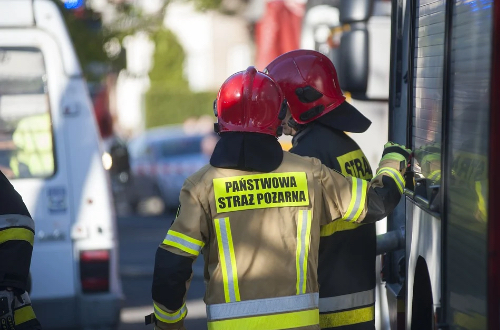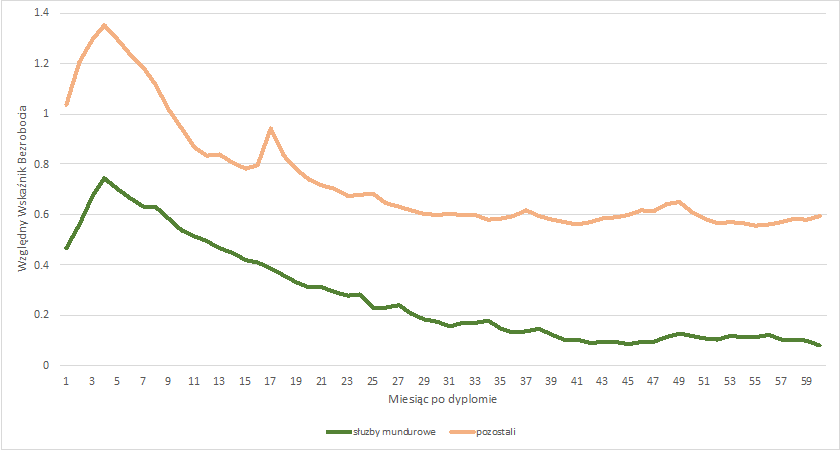
The Polish Graduate Tracking System (ELA) has taken a close look at the economic situation of graduates who work in uniformed services. It turns out that this group of graduates is more effective in terms of finding and keeping jobs. They are also at a lower risk of unemployment than other groups of graduates.
Some university graduates choose to work in the uniformed services, e.g. in the army, police or fire brigade. However, not only graduates of universities commonly associated with particular uniformed services, such as military academies, decide to pursue this career path (the ELA system does not include data on soldiers undertaking military studies). Work in the uniformed services is often the preferred choice for former civilian students, too.
A career in uniformed services is not a rare choice: in 2014, nearly 5,000 people (almost 3%) out of the total of 176,000 graduates chose this type of work. What distinguishes this group from other graduates?
First of all, work in the uniformed services is more popular among men than women. Males account for 78% of the graduates in this group, while in non-uniformed professions they only constitute 31% of the total. Secondly, graduates taking up employment in the uniformed services are typically graduates of degree programmes in social sciences. This was the case for 73% of the graduates who chose to work in uniforms, while only 51% of the other graduates hold a social sciences diploma. The second largest group of graduates working in the uniformed services studied the academic area of technological sciences, followed by medical, health and sport sciences (8.5% and 8.1%, respectively).
Which particular degree programmes produce the highest number of graduates who take up work in the uniformed services? The predominant ones are the degree programmes related to security, management and leadership, and sports (see Table 1).
| Degree programme | Percentage of graduates employed in the uniformed services |
|---|---|
| Security engineering | 60% |
| Internal security | 44% |
| National security | 28% |
| Management and Leadership | 20% |
| Sports | 11% |
How long did the graduates in the uniformed services look for work? Those who took up employment within five years of obtaining their diploma found work on average twice as fast as other graduates (i.e. within 2 months compared with 4.3 months for other graduates). They were also quicker to secure full-time employment: it took them 3.6 months on average (compared with 7.6 months for other graduates). Interestingly, the first job found by the graduates who eventually found employment in the uniformed services was typically not a job in the uniformed services. In order to secure a full time position in the uniformed services, the graduates needed 9.9 months on average.
Future employees of the uniformed services are also at a lower risk of unemployment than other graduates. This is reflected in the Relative Unemployment Index (RUI) which refers the graduate’s risk of unemployment to his/her local unemployment rate in their area (poviat) of residence.
 Figure 1.
Changes in the Relative Unemployment Index among the 2014 cohort of master’s studies graduates who took up
employment in the uniformed services, compared with other graduates from the same cohort.
Figure 1.
Changes in the Relative Unemployment Index among the 2014 cohort of master’s studies graduates who took up
employment in the uniformed services, compared with other graduates from the same cohort.
As we can see, throughout the entire period under study, the level of unemployment among the graduates who took up employment in the uniformed services was several times (from nearly two to over seven times) lower than among other graduates.
Five years after graduation, the graduates in this group were more likely to have a job (94% against 84% in the group of graduates working beyond the uniformed services). They also proved to be even more effective than the others in maintaining a full-time job (91% against 72%). In turn, they took up casual / part-time jobs less often (8% against 12%) and decided to become self-employed much less frequently than the group of graduates working beyond the uniformed services (3% against 9%).